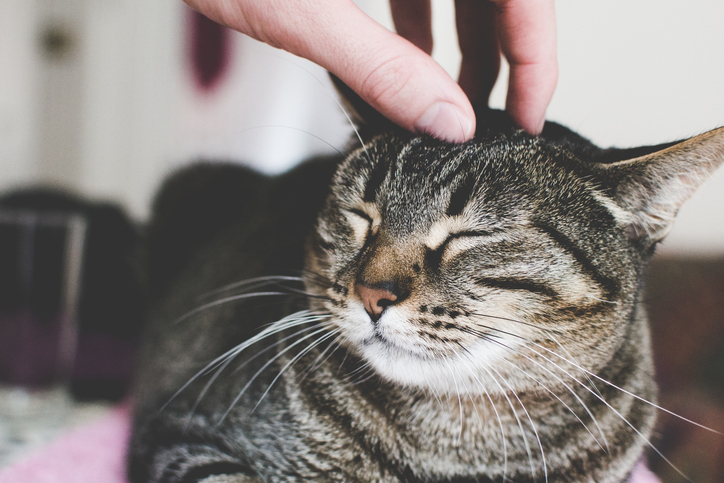Traduttore, traditore. ‘The translator is a traitor.’ This oft-cited Italian pun wittily sums up the dilemma every translator faces.
Sometimes, it’s difficult to capture all the nuances of the original, and some words can only be explained rather than translated directly. Every expat may have made that experience when communicating in a foreign language. It can often be frustrating, but it can also give you a new-found appreciation of languages’ infinite variety.
Take the following words from ten different languages. Funny or odd or simply beautiful, they don’t have a precise equivalent in English. (Which is a pity, as they’d come in pretty handy at times.)
Fernweh (German)
Let’s start with a feeling all expats know only too well: Heimweh. The English translation ‘homesickness’ has been in use since the 18th century, but there’s no single word to capture its opposite: Fernweh.
Yes, in German, you can also be ‘distant-sick’! You are missing a place that’s not your home, or you are longing to go far, far away.
Pavonarse (Spanish)
Once you’ve succumbed to Fernweh and set out for another country, everything will seem fine and dandy at first. Perhaps you can’t even resist the temptation of pavonarse, as they say in Spain.
This Spanish word could be rendered in English as ‘showing off’, such as telling everyone on social media what a wonderful time you’re having abroad. If birds used social media, that is. Literally, pavonarse means ‘to peacock yourself’: strutting around and displaying your shiny feathers for all the world to see.
Yoko-Meshi (Japanese)
But alas, instead of having the time of your life in another country, you might encounter the sad reality of yoko-meshi. That Japanese phrase means something along the lines of ‘boiled rice eaten sideways’. Huh. Have we all been eating sushi the wrong way?
What this term is actually getting at is ‘the awkwardness of making yourself understood in a language not your own’. Table manners aside, that’s something we can all relate to, isn’t it?
Buitenbeentje (Dutch)
Due to the language barrier, you could even start feeling like a buitenbeentje (Dutch), no matter whether you are living in the Netherlands or somewhere else.
A misfit isn’t just a misfit there, but a ‘little outside leg’. Apparently, this expression originally referred to babies born outside of marriage, but nobody quite knows where the thing with the leg comes from.
Kalsarikánnit (Finnish)
If you are feeling a bit like an outsider, it’s no wonder if you are also feeling a bit blue. Perhaps you haven’t managed to build a new social circle yet, and the thought of another weekend on your own can be daunting.
Then it’s time to follow the Finns’ example and embrace kalsarikánnit: ‘drinking at home alone in your underwear on a Friday or Saturday night’. Could be that I’ve seen one Aki Kaurismäki movie too many, but somehow I’m not that surprised the Finnish language has a proper word for that.
Dor (Romanian)
During kalsarikánnit, the homesickness sets in. If your Heimweh gets really intense, the German word is no longer enough. Only the Romanian dor can express the full depth of your emotions.
Dor is what you feel when you want something you’ve had before, even if it’s unattainable; the strong desire to see someone you hold dear again, the almost agonizing feeling of missing them, missing home.
ChÄ� Kŭ (Chinese)
After you have wallowed for a while, just think of the Chinese expression chÄ� kŭ: ‘eating bitterness’. Just like yoko-meshi, this has got to do nothing with real food.
The closest translation is ‘to persevere’, but chÄ� kŭ is about so much more: it’s all about bearing hardship, carrying on regardless, and hopefully moving forward. If you can master that, then goodbye to homesickness and welcome to hygge abroad!
Hygge (Danish)
The Danish concept of hygge has even sparked a recent trend. If you google the word, you won’t only find countless images of people wearing hand-knit sweaters and fluffy socks, relaxing in front of a brightly lit fireplace or gathering round a laden dinner table, but entire books telling you how to hygge.
Hygge is said to be more than mere ‘coziness’: it’s the warm and cordial atmosphere in which you enjoy the simple things in life and share them with your loved ones.
Utepils (Norwegian)
For the Norwegians, an utepils could be hygge. For the Brazilians, it might be a moment of cafuné. The former term literally means ‘outside beer’, but it encompasses more than simply having a drink in the open air. It also implies enjoying the moment and the sunny weather.
Considering both the average price of beer in Norway and the average local temperatures, it’s easy to see why this would be considered the epitome of happiness. (Utepils would also be a useful word to adopt in Bavaria, where beergarden culture is everywhere.)
Cafuné (Brazilian Portuguese)
Cafuné, a word of uncertain origins, is a much more affectionate term than the casual utepils.  It specifically describes the ‘act of tenderly running your fingers through the hair of a person you love’, a sweet gesture among family members, couples, or close friends. All together now: aww!
It specifically describes the ‘act of tenderly running your fingers through the hair of a person you love’, a sweet gesture among family members, couples, or close friends. All together now: aww!
Are there any interesting words in your language that can’t really be translated into English? What do they mean?
(Image credit: 1), 2), 3), 4), 6) Pexels; 5), 7), 10) iStockphoto; 8), 9) StockSnap)









Glad to see you liked our list!